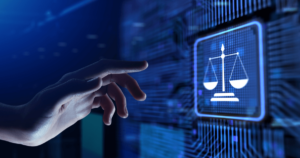Introduction:
In today’s world nearly every aspect of life involves the internet, cyberlaw has become more important than ever. From online banking and social media to digital business transactions and data sharing, the digital space has created both opportunities and vulnerabilities. Cyberlaw, also known as internet law or IT law, is the legal framework that governs the use of the internet and digital technologies.
The primary goal of Cyberlaw is to ensure that digital interactions are safe, secure, and legally compliant. It helps protect individuals, businesses, and governments from risks and threats in cyberspace, while also promoting ethical use of technology.
What is Cyberlaw?
Cyberlaw refers to the laws that apply to the internet and other digital technologies. It covers a wide range of issues, including:
-
Data protection and privacy
-
Cybercrimes such as hacking, identity theft, and phishing
-
Intellectual property rights in the digital space
-
E-commerce regulations
-
Digital signatures and authentication
-
Content regulation (e.g., hate speech, online defamation)
It ensures that digital interactions remain fair, safe, and within legal boundaries.
Why Is Cyberlaw Important?
-
Protecting Privacy: With increasing data breaches and misuse of personal data, cyberlaw ensures that companies and platforms handle user data responsibly and with consent.
-
Combating Cybercrime: Cyberlaw provides a legal basis to investigate and penalize cybercriminals. This includes laws related to unauthorized access, cyberstalking, and financial fraud.
-
Regulating Digital Business: It governs digital contracts, online payments, and ensures secure e-commerce practices.
-
Maintaining National Security: Cyberlaws help governments protect against cyberterrorism and safeguard critical infrastructure.
-
Protecting Intellectual Property: It safeguards digital content like software, music, and video from piracy and unauthorized use.
Key Cyberlaw Legislation Around the World
-
India: Information Technology Act, 2000
-
USA: Computer Fraud and Abuse Act, and the Electronic Communications Privacy Act
-
EU: General Data Protection Regulation (GDPR)
-
UK: Data Protection Act and the Computer Misuse Act
These laws evolve continuously as technology advances and new threats emerge.
Challenges in Enforcing Cyberlaw
-
Jurisdiction Issues: Crimes committed across borders make it difficult to enforce national laws.
-
Anonymity Online: Tracking and identifying cybercriminals is challenging due to tools like VPNs and encryption.
-
Rapid Tech Growth: Laws often lag behind emerging technologies like AI, IoT, and blockchain.
-
Lack of Awareness: Many users and businesses remain unaware of their rights and responsibilities under cyberlaw.
The Future of Cyberlaw
As technologies like artificial intelligence, virtual reality, and quantum computing grow, cyberlaw must adapt to address new ethical and legal challenges. Governments, legal experts, and tech companies must work together to create laws that balance innovation with protection.







